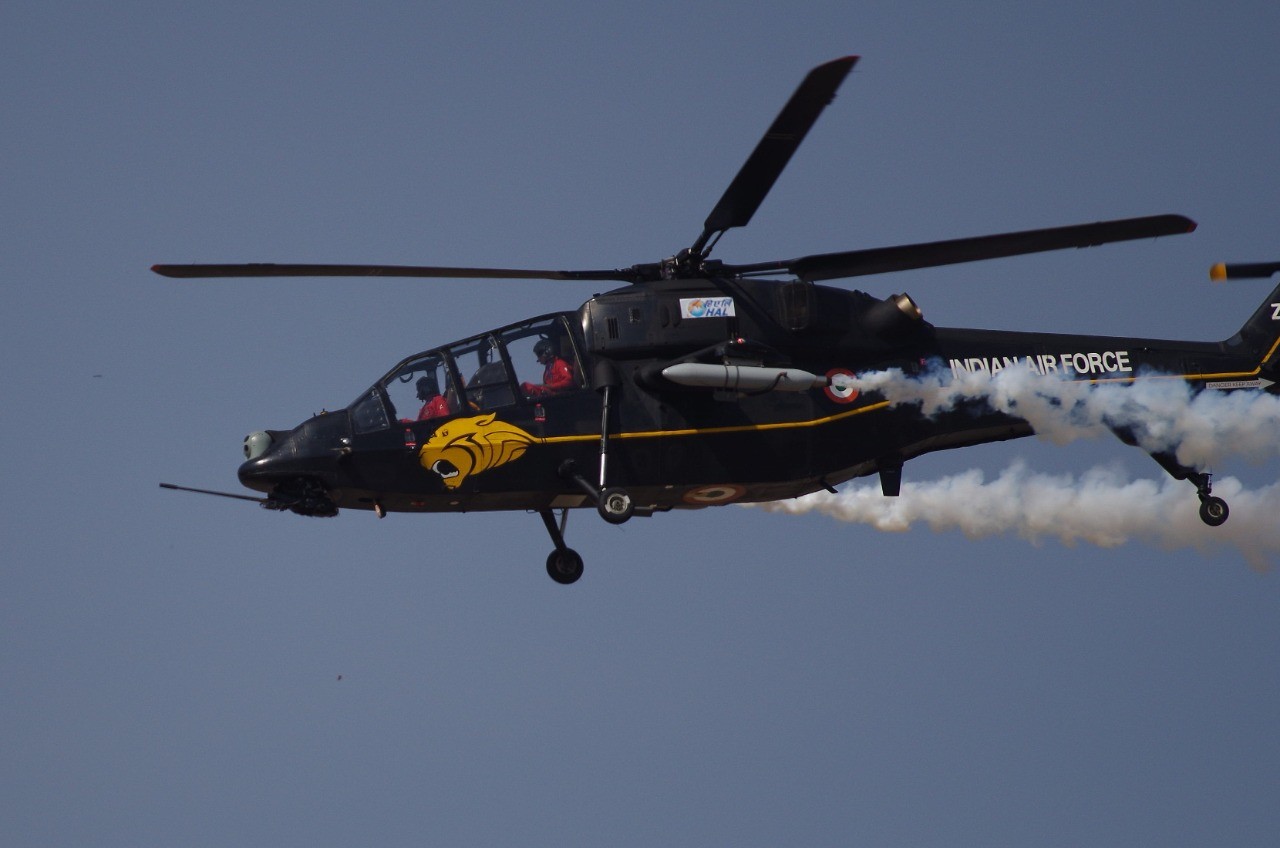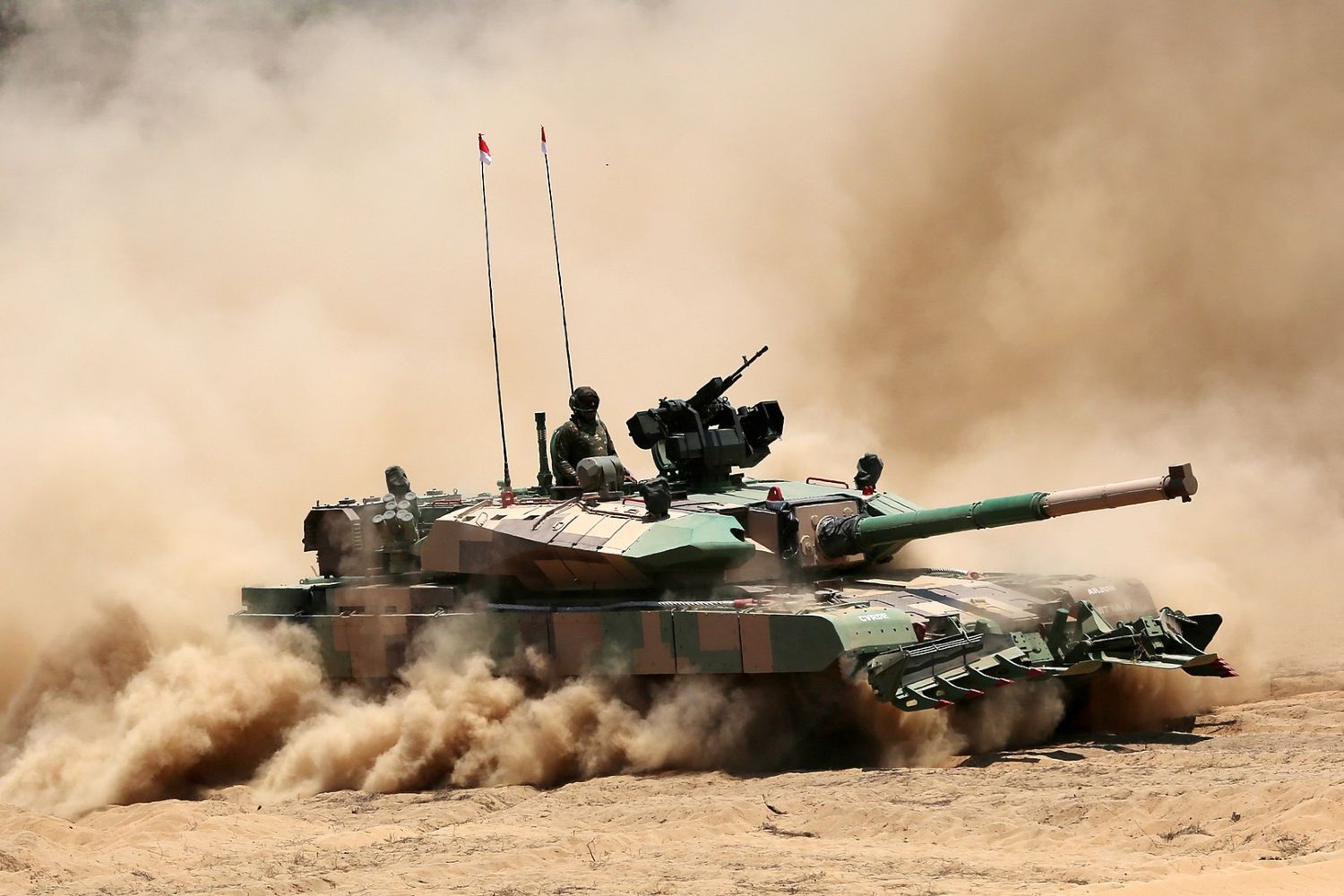The Indian diplomatic blitzkrieg of the past couple of years to further defense ties with African countries seems to be bearing fruits. India and Nigeria are set to ink an unprecedented US$1 billion deal to boost the defense industry in the African nation.
Nigeria has expressed interest in the Indian Light Combat Aircraft (LCA) Tejas, drones, and armored personnel carriers.
Nigerian President Bolar Ahmed Tinubu approved the likely deal to be signed between the Defense Corporation of Nigeria (DICON) and the Indian Ministry of Defense sometime soon.
The Indian Ministry of Defense would help the DICON to achieve 40 percent self-reliance in military hardware manufacturing by 2027.
According to the Military Africa web portal, the DICON has been struggling to meet the needs of the Nigerian military, but being cash-strapped and chronic mismanagement has held it back from producing any significant weapons.
The Indian deal aims to provide funding and expertise to DICON to refurbish itself and manufacture a wide array of military products ranging from firearms and ammunition to armored vehicles and advanced communication systems.
The arrangement with India will help the Nigerian government to do away with defense imports while aiding India to maintain its influence in the continent that has seen massive inroads from China.
President Tinubu met the Indian Defense Minister Rajnath Singh during his ongoing India visit. Ajuri Ngelale, the spokesperson of Nigeria’s President, told the media: “We are discussing defense deals worth over US$1 billion to boost the Defence Industries Corporation of Nigeria for achieving 40 percent self-sufficiency with the cooperation of the Indian government.”
The deal may be signed during the ongoing visit of the Nigerian President to India, where he met Indian businesspersons as part of the Nigeria-India presidential roundtable and conference to mobilize international funding for infrastructure development.
He is attending the G-20 summit chaired by India as the head of state of a guest country and, being the largest democracy in Africa, Nigeria is seeking membership in the G-20.
Playing In The Big League
In the past couple of years, the Indian defense industry has exuded confidence akin to the big players in the defense sector. The Indian Government is aggressively pursuing self-reliance in the defense manufacturing field. While the Indian armed forces are encouraged to support the “Make-in-India” products, the country is also eyeing foreign markets for its military hardware.
So, it did not come as a surprise when India gathered officials from 31 African countries in the beginning of 2023 to showcase its domestically made helicopters, drones, and artillery guns.
During the gathering of African officials, the Indian military simulated operations featuring helicopters, armored vehicles, and bomb disposal robots. Also on display were assault rifles, artillery shells, and models of missiles.

The gathering preceded nine days of multilateral maritime drills and the Africa-India field training exercise (AFINDEX-2023), with soldiers from 23 African countries, including delegates from Ethiopia, Egypt, Kenya, Morocco, Nigeria, Rwanda, and South Africa participating.
India has long-standing cooperation with African countries and provides training to military personnel from many African countries. Besides, India contributes to peacekeeping troops in Africa. A mutual trust between India and the African countries makes it easier for India to sell weapons.
India also has a considerable price advantage over Western defense companies, and New Delhi exploits it to the hilt.
Making no bones about its ambition to become a major exporter in the defense sector, India has asked its Defense Attachés posted overseas to play a “pivotal role” in achieving the defense export target of US$5 billion by 2025. Under the scheme, India is targeting 85 countries.
The Indian government told the parliament in April 2023 that the total defense export in 2022-2023 is valued at around Rs. 16,000 crores (US$2 billion), a tenfold increase from 2016-2017.
The primary defense equipment exported during the last five years includes Weapon Simulators, Tear Gas Launchers, Torpedo Loading Mechanisms, Alarm Monitoring and Control, Night Vision Monocular and Binocular, LightWeight Torpedo and Fire Control Systems, Armoured Protection Vehicles, Weapons Locating Radar, HF Radio, Coastal Surveillance Radar, etc.
At present, the exports are being made to more than 80 countries all over the world. “Names of the countries cannot be divulged due to strategic reasons,” the Indian government said.
Major platforms like Dornier-228, 155 mm Advanced Towed Artillery Guns (ATAGs), Brahmos Missiles, Akash Missile System, Radars, Simulators, Mine Protected Vehicles, Armoured Vehicles, PINAKA Rockets & Launchers, Ammunitions, Thermal Imagers, Body Armours, besides Systems, Line Replaceable Units and Parts & components of Avionics and Small Arms have been exported.
There is growing interest in LCA Tejas, Light Combat Helicopters, Aircraft Carrier, Maintenance Repair and Operations (MRO) activities, etc.
Between 2017-2021, Mauritius, Mozambique, and Seychelles accounted for 6.6 percent of India’s arms exports to Africa. Egypt has shown interest in LCA Tejas, and Kalyani Strategic Systems Limited has also won an export order worth US$155.5 million for supplying 155 mm artillery guns to an unnamed country. India has also been pitching Main Battle Tank Arjun.

“India is geared up to provide Offshore Patrol Vessels, fast interceptor boats, body and vehicle armor, Night Vision Goggles, Unmanned Aerial Vehicles, Dornier aircraft, and arms and ammunition to our African counterparts,” Rajnath Singh said at the DefExpo 2020 in Uttar Pradesh, addressing the first Indo-Africa Defense Ministers’ Conference, attended by 12 African defense ministers and representatives from 38 countries.
Since then, India has extended a line of credit of around US$14 billion to 42 countries in the African Union. While most of it will be used for infrastructure development, India has shown openness to use lines of credit for defense deals.
- Ritu Sharma has been a journalist for over a decade, writing on defense, foreign affairs, and nuclear technology.
- She can be reached at ritu.sharma (at) mail.com




